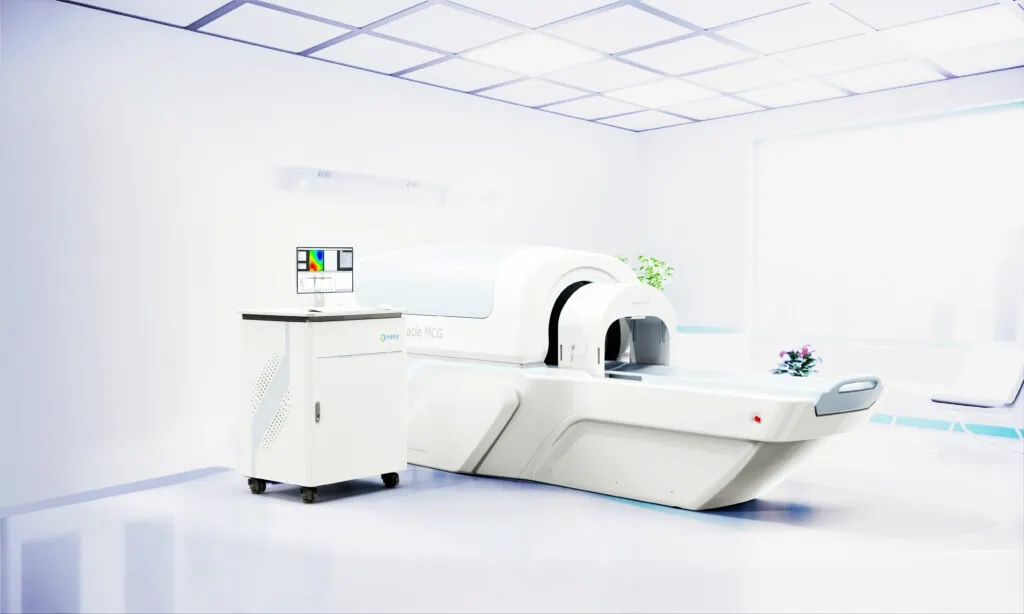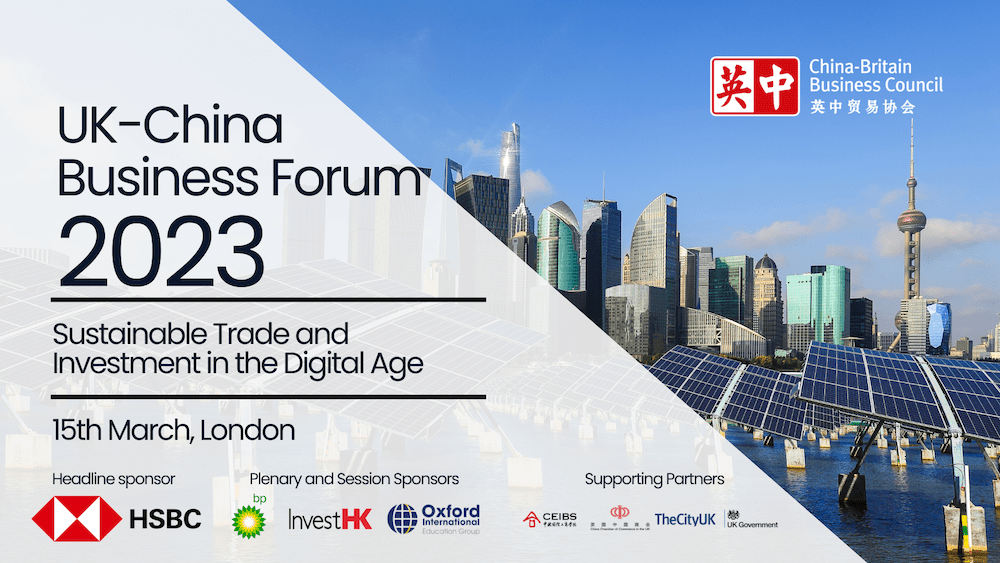Without crossover between China and the UK in everything from education to manufacturing, the medical technology pioneered by Beijing X-Magtech Technologies might never have existed. Sarah Keenlyside spoke to co-founder Bin Cai to find out more
You don’t need a science degree to understand the life-saving benefits of Beijing X-Magtech Technologies’ commercial-grade atomic magnetometer.
Possessing sensitivity about a billionth of earth’s magnetic field, it acts like a tiny microscope with the ability to detect extremely weak magnetic fields. The outcome for doctors around the world? The chance to detect cardiovascular and brain diseases such as Alzheimer’s with more precision, more quickly and in the most non-invasive way possible.
However, what’s perhaps most impressive about this groundbreakingly affordable magnetic sensor is that it’s been developed by a small, Beijing-based company that only started in 2020, has raised capital from high-profile investors such as IDG and has already won a British Business Award. The device is now being used by hundreds of patients a day in some of China’s key hospitals, with patents pending in Europe and the US.

Beijing X-Magtech Technologies’ commercial-grade atomic magnetometer
Providing scientists and engineers with a powerful tool to investigate new physics and engineering applications, it’s not just the medical field that the technology will impact either: everything from geophysics and materials testing to the defence industry are potential beneficiaries going forward.
The company was co-founded by Bin Cai, a Xi’an-born entrepreneur who studied Aerospace Engineering at the University of Bath before working at Rolls Royce and Jaguar Land Rover in the UK for over 12 years. Bin is clear about the influence his UK education and work experience had on X-Magtech’s creation: “My experience helped me gain an international perspective and an open mind in terms of what was possible, which was crucial for creating something so innovative and disruptive,” he says.
Bin says collaborations in scientific research and education between the UK and China have also played a key role in his company’s origin story.
“All four co-founders of our company have their highest degree from the UK, and each of us spent at least four years in the UK on average,” he says, adding that, combined with his cultural knowledge of how to do business in his home country, he and his co-founders were able to combine the technical and commercial skills needed to get the atomic magnetometer into hospitals back home.
However, Bin’s journey hasn’t been without its difficulties.
“The greatest challenge was how to establish a technology start-up aimed at disrupting the market and changing the sector,” he explains. “Most people in China believe that products like this have to be developed by famous universities or research centres rather than a small company with no government support or research grants – which made our first fundraising round very difficult.”
After investing RMB 10 million (£1.2 million) of their own money on a prototype to demonstrate the product’s capabilities – and a lot of persistence – the four founders were able to get the first group of investors on board.
Since then, Bin says, the UK and China’s relatively stable economic relations throughout the pandemic have helped his company move forward more efficiently, since X-Magtech has a very specific supply chain for components from the UK.
“We depend heavily on each other’s technical breakthroughs, commercial validation, supply chains and, most importantly, talent,” he says, adding that supporting companies like X-Magtech benefits not just the UK and China, but other countries too.
“Products like ours help everybody. Our contribution to the field has been to provide an affordable and robust commercial solution so the technology can be applied in the real world faster and benefit more patients – ultimately saving more lives.”
X-Magtech’s Magnetocardiography (MCG) system – for measuring magnetic fields caused by electrical currents in the heart – was cleared by the CFDA (China Food and Drug Administration) for market entry in early 2022, and the company estimates 20-30 hospitals will become their customers in 2023. They hope to reach as many as 1,000 hospitals in the next five years.
“This year our MCG system will be installed in many more hospitals, and we will keep developing the product, especially with a large dataset from across the country that could allow us to improve the accuracy of a [patient’s] diagnosis,” Bin says.
“Our MEG product will also come to the market this year so there will be a lot of work to do, but we are excited to see our quantum technology helping scientists and doctors better understand our brains and to treat brain disease with this new tool.”
So how can companies like Bin Cai’s be helped to reach their goals more quickly?
“It may sound like I’m being diplomatic, but I really would like to see us continue being great collaborators in these areas, and where necessary to agree to disagree.”
“But it would also be very helpful if there were more opportunities for companies like ours to showcase our products to relevant audiences in the UK, since quantum technology is a key strategic area and the UK has a great medical market and industry.”
The truth is, with robust support behind Bin Cai and his 50-strong team, there really is no limit to what X-Magtech can do for global good.




